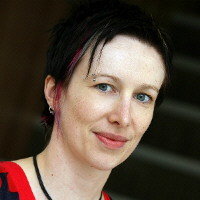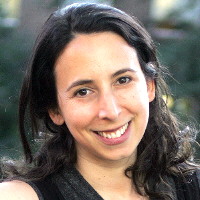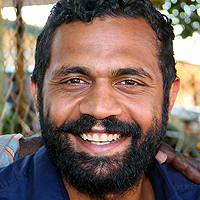Project team
 |
Associate Professor Lisa Alexander, UNSW
Lisa’s work primarily focuses on improving our understanding of observed changes in the frequency and severity of extreme climate events, which have the potential to have profound societal and ecological impacts. This involves multiple research tools, ranging from station observations to climate model output. A senior lecturer at the UNSW CCRC, much of her work has been focussed on the creation of high quality global datasets and comparison with state-of-the-art climate models.
Click for more >>
|
 |
Associate Professor Hilary Bambrick, UWS
Hilary is Associate Professor at the Centre for Health Research, University of Western Sydney. She is an environmental epidemiologist and bioanthropologist, whose research focuses on climate change health impacts and adaptation, especially among more vulnerable communities in Australia and abroad.
Click for more >>
|
 |
Dr Donna Green, UNSW
Donna’s research focuses on human-environment interactions, specifically on social and economical vulnerability, adaptation and risk. Her current research programme uses Indigenous and non-Indigenous knowledge to understand climate impacts on remote communities in northern Australia. Her teaching focuses on linking energy policy, climate change and environmental impacts in Australia and internationally.
Click for more >>
|
 |
Bruce Martin, Chief Executive Officer, APN Cape York
Bruce Martin is a member of the Winychanam Clan of the Wik people's of Western Cape York Peninsula and was theChief Executive Officer of APN Cape York, a community organisation controlled and owned by the people of Aurukun. Previously Bruce has worked with organisations throughout the Far North Queensland region in the areas of Health, Youth and Family Wellbeing, substance misuse, men's issues and in environmental and Native Title. He is also been appointed as a member of the Commonwealth Indigenous Advisory Committee on Environmental issues.
Click for more >>
|
 |
Joe Morrison, Chief Executive Officer, NLC
Joe was born and raised in Katherine in the Northern Territory, and has both Aboriginal (Dagoman) and Torres Strait (Moa Island) heritage. Previously the chief executive of the Northern Australian Indigenous Land and Sea Management Alliance (NAILSMA), he has spent the past two decades working with Indigenous communities and has a wealth of expertise on issues including Indigenous rights to water, Indigenous traditional knowledge, carbon industries, caring for country and the natural environment.
|
 |
Professor Andy Pitman, UNSW
Andy is the Director of the ARC Centre of Excellence for Climate System Science. He is a climate scientist whose research focusses on land surface processes. Recently, he has been working on coupled carbon modules for climate models, including how vegetation responds to increasing carbon dioxide. He has also explored the global and regional impacts of land cover change.
|
|
Xavier Schobben, Environmental Health, NT Government
Xavier is the Director Environmental Health for the NT Department of Health. His contribution to this study includes providing expert advice on environmental health research, especially as it applies to policy and service delivery. He facilitates data gathering; ensures coordination with local groups assisting in the research; assists in interpreting study findings; and facilitates transferring those findings into policy.
|
 |
Victor Steffensen
Victor is an Indigenous land and community consultant at Mulong, who uses film, music and the arts to restore and support community and environmental initiatives. Victor created the Traditional Knowledge Revival Pathways program in 2000 for recording and strengthening traditional knowledge which is still supporting communities to this day. Today he is still developing and applying recording and revival methodologies through Mulong, to support research and community projects for improved well-being and equal opportunity. As the Director of Mulong, he is regularly asked to consult on how best to support community and environmental issues across Australia and internationally. Being a part of his people and country through his mother’s roots in the gulf country of North Queensland, he has dedicated himself to strengthening Indigenous knowledge into ground breaking projects that can give the best outcomes for our community and environment.
|
 |
Dr Peter Tait
Peter is a general practitioner whose work over the past three decades at the Aboriginal Community Controlled Health Service in Alice Springs was recognised with the Royal Australian College of General Practitioners’ General Practitioner of the Year Award for 2007. Through his work as a GP, he has acquired a significant knowledge about Indigenous health concerns, including impacts relating to culture and environmental change. Peter completed a Master of Climate Change in 2010 through the Australian National University and is active in the Public Health Association of Australia’s work on the social and environmental determinants of health. His expertise will help inform the framing of our research into Indigenous well-being, and will also guide the analysis of interview material.
|
 |
Dr John von Sturmer
John has been involved with Aboriginal research, art and performance since the late 1960s, when he lived with Wik people to carry out his PhD work. He has held teaching and research positions at the universities of New England, Queensland, New South Wales & Charles Darwin, as well as the Australian Institute for Aboriginal & Torres Strait Islander Studies. John has worked with community members from Aurukun performing cultural mapping and is regularly asked to advise on cultural and land negotiations on the Cape.
|
 |
Dr Leanne Webb, postdoctoral research fellow
Leanne has worked in the field of climate change impacts and regional adaptation for 10 years. Through her work with the CSIRO's Division of Marine and Atmospheric Research, she develops regional climate change projections and uses spatial techniques to expose links between climate change and its associated regional impacts and risks. This work informs many regional climate change adaptation strategies and measures. For this project, she is using quantitative modelling skills to explore any links that may occur between Indigenous health and climate, through an examination of 20 years of Northern Territory hospital admissions data. Extrapolation to future climate change impacts will be undertaken.
|
|